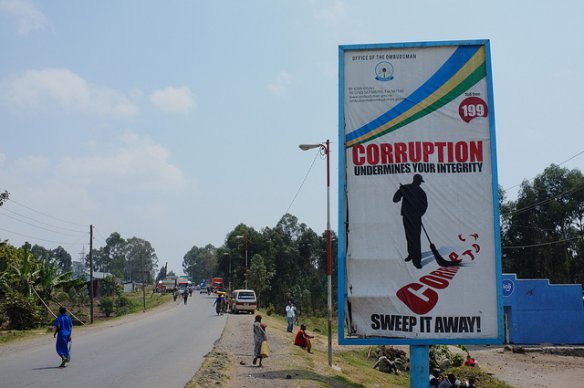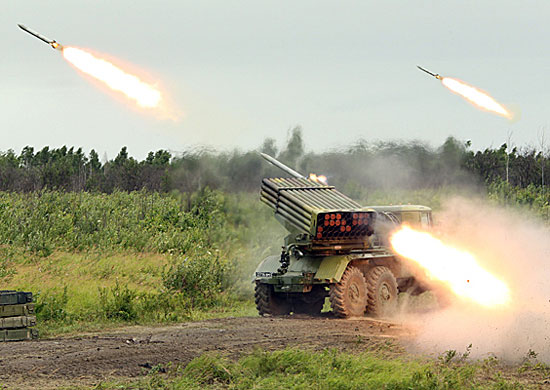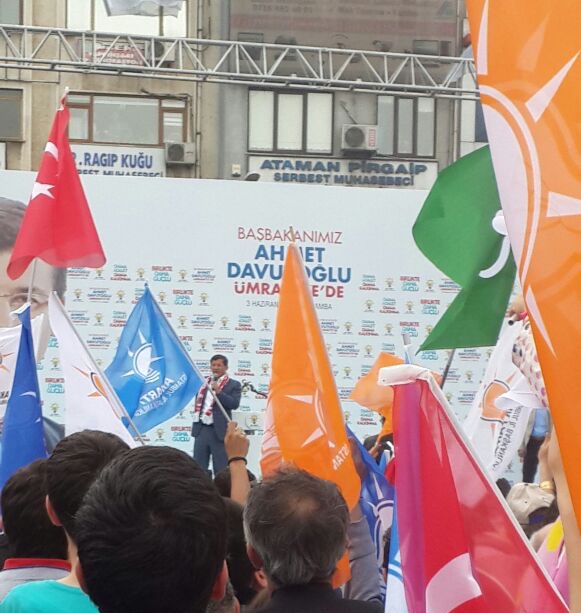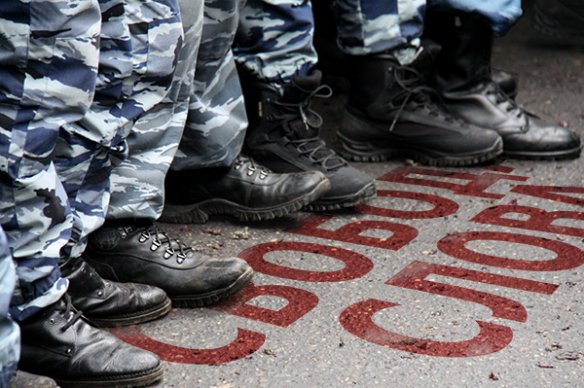UPDF’s intervention in South Sudan indicates Uganda’s strong interest in the new country. Security and regional stability seems to be the chief motives, but various economic interests also crops up in discussions about Uganda’s involvement. It is, however, difficult to assess the importance of this dimension since the extent and nature of Ugandan economic activities… Read more »
Finding Connections: The Nexus between Migration and Corruption
International migration and corruption have several things in common: they play key roles in development processes, feature prominently on policy agendas, and are the subject of large research literatures. However, the connections between migration and corruption, whether in the country of origin or along migration trajectories, remain relatively unexplored.

An anti-corruption billboard near the Rwanda-Uganda border crossing (Photo: Fred Inklaar via Flickr)
The migration-corruption nexus has important implications for migrants, policymakers, practitioners, and local communities affected by emigration and immigration. Although focused attention to corruption remains rare in migration research, corruption frequently comes up as a topic because it affects people’s lives. For instance, one of the studies that inspired this article set out to examine the reintegration of return migrants and discovered that corruption was an overwhelmingly important issue, not foreseen at the outset.
Russia’s accident-prone air might
I made an argument about Russia’s weakening and vulnerability in Brookings’ blog Order from Chaos, suggesting, in particular, that What is less obvious for many Russia-watchers is that the military strength demonstrated so pompously on the Red Square during the May 9 Victory Day parade is also in decline. In Ukraine, the lack of any… Read more »
Aborted Offensive in Donbass on the Eve of the G7 Summit

A subtle Russian message to the G7 summit.
The swiftly terminated rebel attack on Maryinka was probably meant to be Putin’s “warning shot” to the Western leaders. But he only succeeded in reminding them about the near certainty (rather than risk) of a summer spasm in the “hybrid war.” While the Russian battalions concentrated in the war zone appear far from eager to go into battle, the assorted war-bands of local thugs and Russian “volunteers” of invariably aggressive persuasions have nothing else to do but to resume fighting. It seems Putin’s support base is eager to cheer for new victories but absolutely not ready to keep waiting for them while experiencing Russian-style austerity, even if it is explained away as caused by the economic “aggression” of the hostile West. Every picture from the top-level schmoozing in the Bavarian Alps presumably reminds Putin that there is no way back for him, and every opinion poll tells him that the time for the next strike is now, before his loyal subjects tire of the chronic deadlock. There is really no point in waiting for the European Council meeting in late June, where the sanctions are certain to be prolonged; but it is quite tempting for Moscow to try to reshape its agenda.
The rest of the article is in Eurasia Daily Monitor, June 8.
This Week in South Sudan – Week 23
Monday 1 June The Government of South Sudan expelled the United Nations’ resident relief coordinator and deputy envoy to the country, Toby Lanzer. The SPLM later explained the expulsion, describing Lanzer as an ‘’enemy’’ of South Sudan. A delegation of 5 SPLM-G10, accompanied by South African Deputy President Cyril Ramaphosa, returned to South Sudan to… Read more »
Turkey’s Critical Election
With only days to go before legislative elections in Turkey on Sunday, 7 June, the political uncertainty of its possible outcomes are filling newspaper columns. This is a change from the past two elections where a victory for the ruling Justice and Development Party (AKP) was almost a foregone conclusion.

Justice and Development Party (AKP) electoral rally in Ümraniye, İstanbul, for the 2015 Turkish general election. Photo: Nube Cake, via Wikipedia
This Week in South Sudan – Week 22
Monday 25 May The South Sudanese government said it welcomed IGAD’s appointment of Sudan’s president Bashir as the new leader of the IGAD peace negotiations. The SPLA announced that its forces had regained control of Malakal, the capital of Upper Nile state, more than one week after the SPLA (IO) captured it. An advance team of… Read more »
This Week in South Sudan – Week 21
Wednesday 20 May The SPLA (IO) tactically withdrew from Melut, Upper Nile state “in order to reorganize for next move.” According to a communique following the International Conference on the Great Lakes Region (ICGL), the regional leaders rejected the direct participation of the Troika (US, UK and Norway) in the IGAD process, and the UN’s… Read more »
Weakening Russia Curtails Access to Publicly Available Information

Your right to know is cancelled.
These attempts at curtailing the flow of information and persecuting the disseminators of politically undesirable news (including bloggers) might appear old-fashioned and inspired by Soviet-era KGB practices, which are held dear by Putin and his henchmen. They are, nevertheless, more effective than the spread of Internet-based social networks would suggest—and not only due to the impact of their vicious propaganda but also because the mass production of “patriotic” illusions has left many people disoriented and averse to facts and figures that puncture these illusions and leave them with feelings of foreboding disaster. The Kremlin exploits this disorientation and presents its curtailing of Russians’ access to public information as a response to social “demand.” But in orchestrating the stigmatization of dissidents, who persist in digging up the truth about Russia’s decay and corruption, the Kremlin becomes a consumer of its own propaganda. Living the lie of Putinism, Russia may appear strong and determined to defy the allegedly hostile West, but the falsity of this unity is revealed by the population’s indifferent acceptance of the supreme decision to deny honor to the country’s fallen soldiers.
The full text of the article is in Eurasia Daily Monitor, June 1.
Clash of exercises in the High North
International Air Force exercises Arctic Challenge 2015 are going on in the High North with Norway as the lead nation and 9 states (including, remarkably, Switzerland) participating with squadrons of various jet fighters (as well as NATO AWACS E3 planes). Russia found it necessary to respond with snap military exercises of its own, engaging not only… Read more »